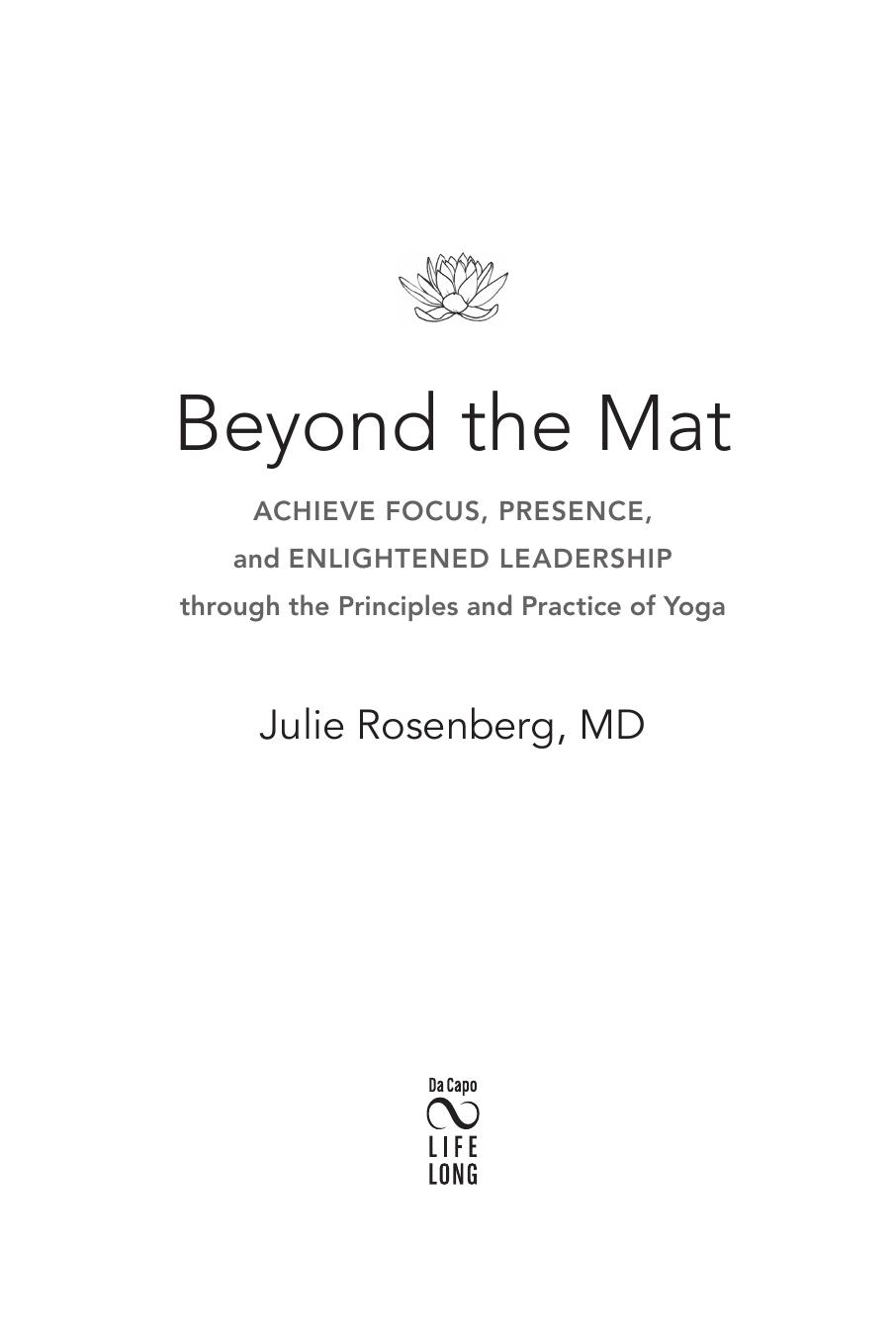Beyond the Mat by Julie Rosenberg

Author:Julie Rosenberg
Language: eng
Format: epub, pdf
Publisher: Da Capo Press
Published: 2017-12-04T16:00:00+00:00
We tend to see stimulation as a necessity or as an escape. Personally, I know how difficult it can be to step away from distractions. I try to attend a master-level yoga class a few times per month. The class meets over the lunch hour during the work week. On many occasions I have arrived about ten minutes early, put my mat near a wall, and taken my computer and phone into the room with me to finish my emails and text messages immediately prior to the start of class. (Of course, this is strictly prohibited, but I justify my behavior knowing that I have shown up during my busy day and prioritized my practice.) But—here’s a question I ask myself, fearful of the answer: Is what I am doing really necessary? I always more than make up the time I spend in class, and there are rarely urgent matters in those few minutes that require my attention. Nevertheless, I repeat the behavior at the risk of my teacher noticing and kicking me out of class. Think about your own experiences, whether in a meeting, at a class, or while spending time with family and friends. What things do you allow to intrude on your time and divide your focus?
Distractions decrease focus, of course, but they also increase stress—despite the immediate sense of relief we feel when we allow ourselves to check our social media notifications in the middle of a tedious task. Leaders who learn to rely on distraction to escape from important challenges become myopic, often putting their energy into trivial activities that deliver little value and sap their creativity and commitment to a larger mission. They respond to an “urgent” but unimportant email instead of rethinking their strategy for the next quarter. Where is their attention most sorely needed?
Believe me: I know firsthand that external distractions are hard to avoid. At the office there are constant interruptions: audible email alerts, coworkers stopping by, phone calls, text messages, or other people’s conversations, especially if you work in an open setting, just to name a few. And if you work at home you’re faced with a different set of things clamoring for your attention: the doorbell, half-completed chores, possibly even children to look after. Regardless of our location, we are often “running” all day among various meetings, projects, committees, initiatives, and so on. It’s not practical or easy to completely shut down if your job or the needs of your family require you to be in constant contact or you’re expecting important incoming messages.
Here are nine ways to manage the need to stay connected and still have a chance to unplug:
Download
This site does not store any files on its server. We only index and link to content provided by other sites. Please contact the content providers to delete copyright contents if any and email us, we'll remove relevant links or contents immediately.
Hit Refresh by Satya Nadella(9134)
The Compound Effect by Darren Hardy(8968)
Change Your Questions, Change Your Life by Marilee Adams(7783)
Nudge - Improving Decisions about Health, Wealth, and Happiness by Thaler Sunstein(7707)
The Black Swan by Nassim Nicholas Taleb(7129)
Deep Work by Cal Newport(7083)
Rich Dad Poor Dad by Robert T. Kiyosaki(6632)
Daring Greatly by Brene Brown(6514)
Principles: Life and Work by Ray Dalio(6449)
Playing to Win_ How Strategy Really Works by A.G. Lafley & Roger L. Martin(6306)
Man-made Catastrophes and Risk Information Concealment by Dmitry Chernov & Didier Sornette(6019)
Big Magic: Creative Living Beyond Fear by Elizabeth Gilbert(5772)
Digital Minimalism by Cal Newport;(5765)
The Myth of the Strong Leader by Archie Brown(5507)
The Slight Edge by Jeff Olson(5417)
Discipline Equals Freedom by Jocko Willink(5390)
The Motivation Myth by Jeff Haden(5212)
The Laws of Human Nature by Robert Greene(5208)
Stone's Rules by Roger Stone(5088)
